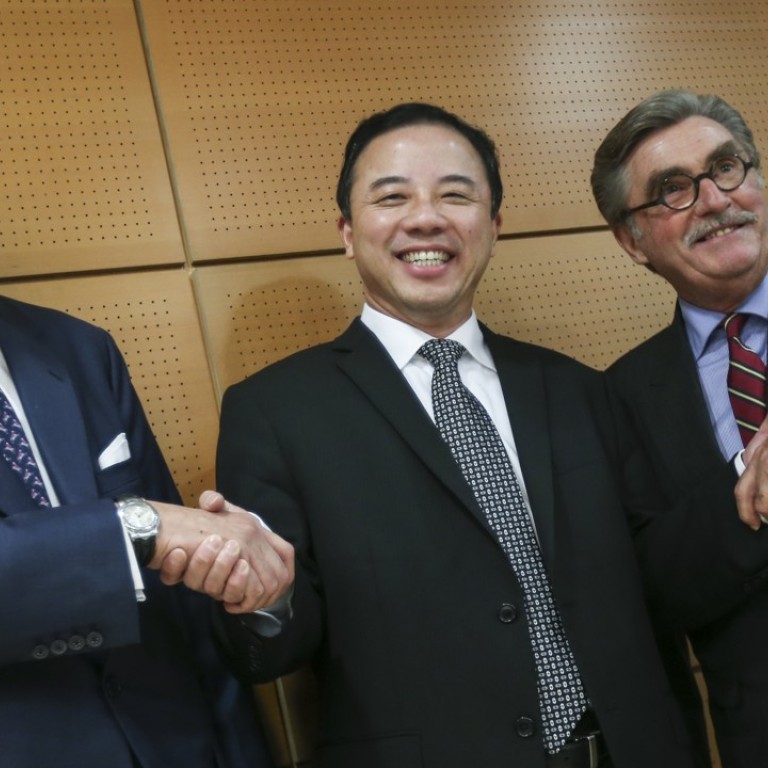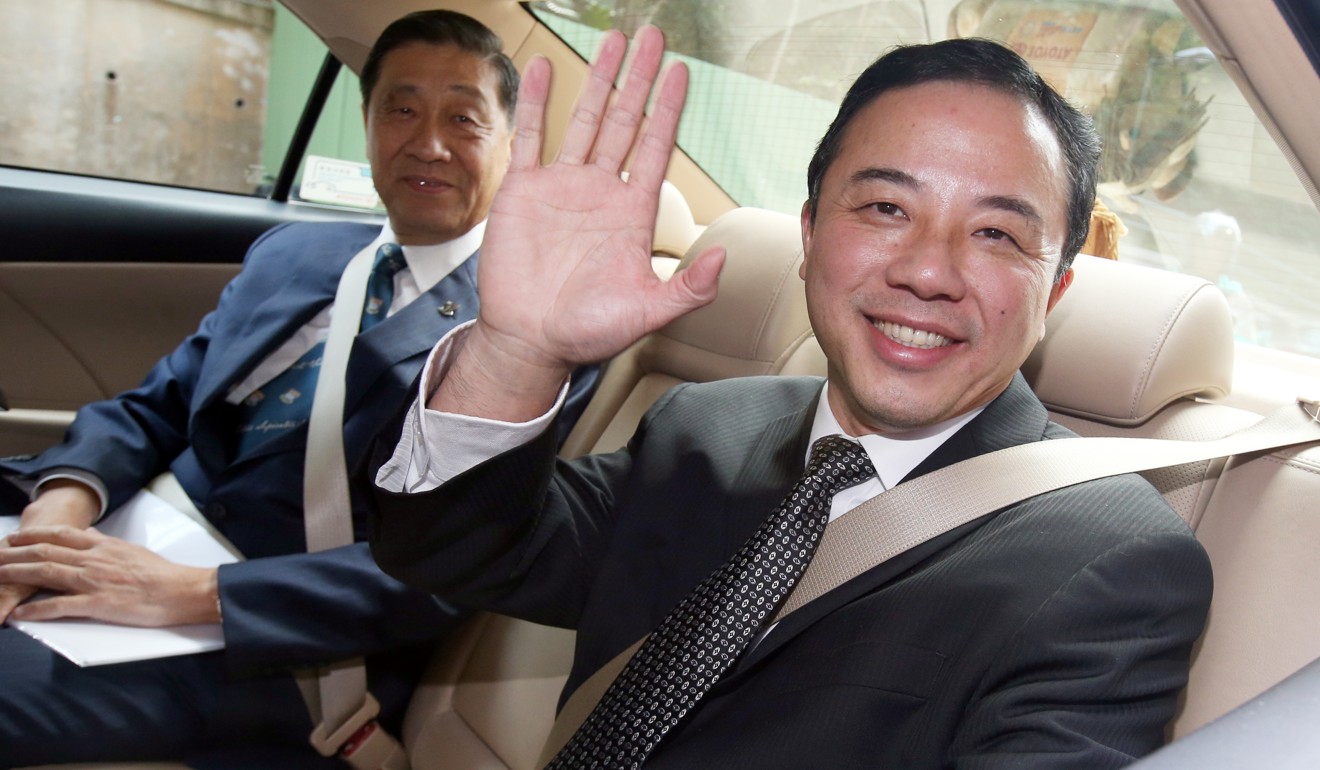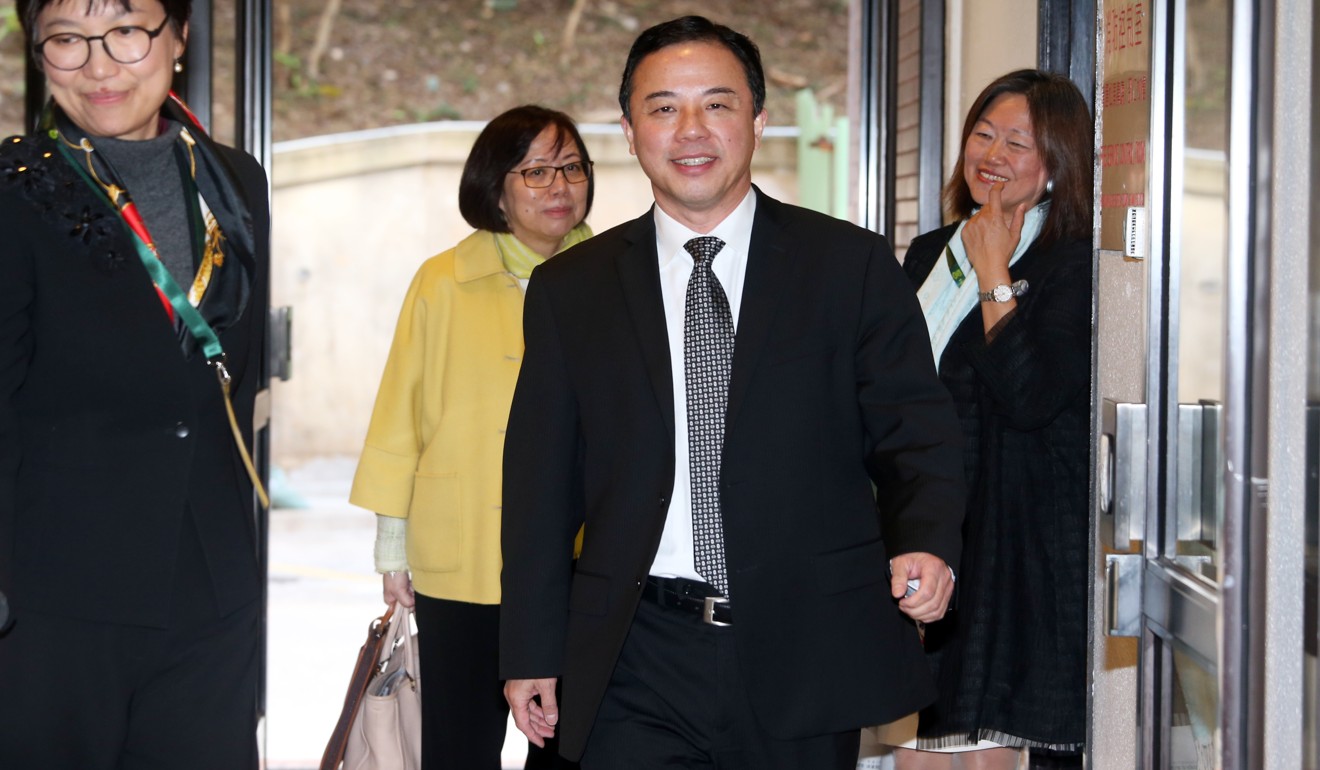
Renowned scientist Professor Zhang Xiang named University of Hong Kong vice chancellor
Appointment comes amid numerous controversies at city’s oldest university
Renowned mainland-born scientist Professor Zhang Xiang was confirmed on Friday as the next vice chancellor of the University of Hong Kong despite concerns from students, staff and alumni about whether he would be able to defend the institution’s autonomy.
There is also no clarity about Zhang’s starting date, because he has to arrange supervision for postgraduate students at his current university.
Speaking to reporters after the institution’s governing council approved Zhang’s appointment, council chairman Arthur Li Kwok-cheung, also the chairman of the 11-member selection committee, said there was an overwhelming decision to select Zhang as the preferred candidate, over three other people.

Li said Zhang, currently a professor of mechanical engineering at University of California, Berkeley in the United States, had warmth, excellent academic standing and experience of managing 900 faculty members, making him suitable for the job.
But the university was still negotiating with the scholar on the starting date, with his contract set to run five years. Li said that Zhang had to make sure his postgraduate students were alright before he could leave his current workplace.
“But [Zhang] had given assurance to council that he will be here full-time,” Li said. The council chairman said he believed Zhang would like to do research locally.
The president of the university’s student union, Ed Wong Ching-tak pointed out there would be no vice chancellor for some time, with incumbent Peter Mathieson stepping down by the end of January. Wong said the period is believed to be less than half a year. A source added there was debate in the council meeting over Zhang’s experience.
Zhang is currently also the director of the Nano Scale Science and Engineering Centre in Berkeley.
On his lack of familiarity with Hong Kong, the mechanical engineering professor stressed he had a lot of interactions with local academics and some of his postdoctorate students were from Hong Kong.
“I do think of myself [as being attached to Hong Kong] through these interactions,” he said.
Zhang acknowledged that he had only visited Hong Kong six to seven times, and HKU twice. He also admitted that he was not too familiar with the controversy surrounding HKU law professor Benny Tai Yiu-ting.
Top pick for new HKU vice chancellor faces questions over research links to US military
Chairman of the university’s academic staff association, William Cheung Sing-wai, who met Zhang at a meeting with staff earlier in the morning, said he got the feeling the professor did not seem to know much about Hong Kong, as he did not talk much about the city. Cheung was worried if Zhang could therefore defend HKU’s autonomy.
Cheung also believed that Zhang did not have enough administrative experience to lead the university.
When Mathieson was appointed to the seat in October 2013, he was also criticised for his lack of understanding of the city.
When he announced his departure in February, many believed it was a political decision – which he denied – and that he was sidelined by Li, a pro-Beijing former education minister often accused of a high-handed management style.
On the issue of academic freedom, Zhang cited his experience in Berkeley, which he said is a very liberal university with lots of debates.

“Academic freedom is a very important part of universities, of course any freedom comes with responsibility and has its own limits,” he said, adding one had to respect the rule of law. He also compared it with owning a gun but not using it arbitrarily without any legal or ethical limits.
His appointment at the city’s oldest university comes at a sensitive time, with HKU embroiled in numerous controversies in recent times, such as a debate over advocacy on campus of Hong Kong independence.
The president of the university’s student union, Ed Wong Ching-tak, who met Zhang at an earlier meeting said the latter spoke about protecting values like academic freedom, but stopped short of saying what actions he would take.
“Actions speak louder than words. It all depends on what actions he takes after he is appointed,” Wong said.
On the topic of June 4 protests, Zhang said the event was unfortunate and hope it would not happen again, adding historians would give a more accurate picture of it in the future.
Zhang decided to take up the job because of Hong Kong’s potential in being a place where the east meets west.
He said he wanted to make HKU a global leading university by having it collaborate with western and mainland China universities.
During an earlier meeting with alumni, he talked about his idea of establishing a “HKU-led Greater Bay Area National Laboratory”, drawing on his work connections in leading institutions, for example, Peking University, the University of Cambridge and Stanford University.
Scholar tipped to lead HKU made his name turning science fiction into reality with ‘invisibility cloak’
“Any national laboratory is like a magnet. You attract all candidates [from around the world],” Zhang said. “Not only will they create top-line research and scientific discoveries but also they will create human intellectual habitats.”
On whether he would serve the full term, which his predecessor did not manage to, Zhang joked that it depended on the media, adding he hoped to have a good relationship with them.
Gabriel Leung Cheuk-wai, the head of HKU’s medical school and rumoured to be one of three other candidates, said he strongly believed his faculty would continue to support the new leader and he hoped Zhang would take HKU to new heights.
Born in Nanjing, Zhang, 54, specialises in nano engineering and 3D fabrication technologies. He is best known for his breakthrough research in metamaterials, a discovery that allows an engineered material to manipulate and bend light in unnatural ways.
The naturalised US citizen studied at Nanjing University and went to the University of Minnesota, in the US, for graduate studies at the age of 25. He later obtained a PhD at Berkeley.


